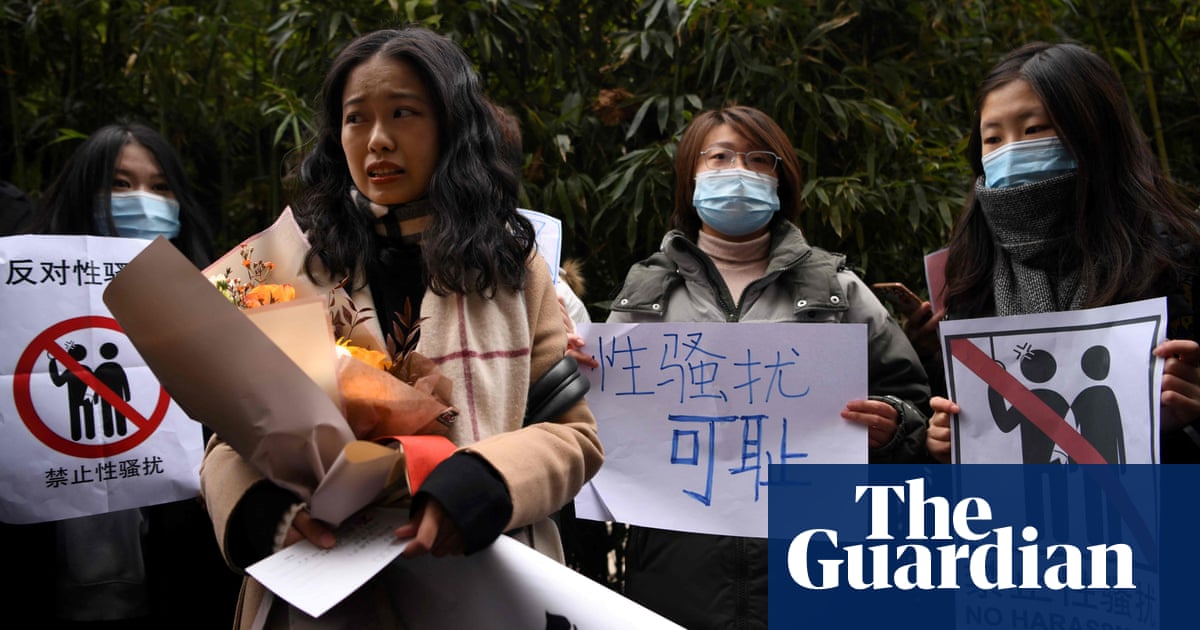
China is considering strengthening its laws on women’s rights to provide more robust protection against gender-based discrimination and sexual harassment in the workplace.
The draft regulations come amid the rise of a nascent #MeToo movement in China, which activists say has been hampered by the country’s strict regime of censorship and oppression against all signs of dissent.
The major draft revision was presented to China’s top lawmaking body for deliberation on Monday. The amendment marks a significant development in the country’s women’s rights legislation since it was implemented almost three decades ago.
Under the proposal, any comments with sexual connotations, inappropriate bodily behaviour, sexually explicit images, or suggestions of benefits in exchange for sex towards a woman without her consent constitutes sexual harassment, according to Reuters.
The definition is the clearest to be provided since the law protecting women’s rights was introduced almost three decades ago. Previous provisions stated merely that sexual harassment against women was prohibited.
An employer would also breach the proposed laws if they fire or reduce a woman’s salary for getting married, becoming pregnant, taking maternity leave, or breastfeeding in the workplace. All schools and employers are also encouraged to implement systems to prevent sexual harassment.
The new regulations also extend to the home, granting women who bear the responsibility of taking care of the household the right to demand compensation from her husband in a divorce. The amendment comes after a court in Beijing granted a housewife a 50,000 yuan payout from her former husband as labour compensation in February, in a case that sparked nationwide attention and debate.
The standing committee of the National People’s Congress is expected to debate the amendments to the Law on the Protection of Women’s Rights and Interests on Friday at the earliest. The implementation timeline remains unclear.
The proposal comes amid a whirlwind of international attention on gender and power inequality in China, after the tennis star Peng Shuai made apparent allegations of sexual assault against a former vice-premier in early November.
The Women’s Tennis Association has continued to voice concerns over Peng’s welfare after the player on Sunday denied having accused anyone of sexual assault in what appeared to be an informal interview with a Singaporean Chinese-language outlet.
Peng had earlier posted a social media post describing a non-consensual sexual encounter with the former vice-premier Zhang Gaoli, which was removed by censors within 30 minutes. Peng disappeared from public life for three weeks after the post, sparking concerns among the international sporting community about her welfare.
The WTA has announced it will suspend all tournaments in China after several failed attempts to reach the player directly.
China’s patriarchal society is reflected in its ruling and business elite, which is dominated by men.
The country’s fledging #MeToo movement hit a major setback in September, when Zhou Xiaoxuan, a 28-year-old woman, lost a high-profile sexual harassment court case she had brought against a well-known broadcasting host with strong political ties. Zhou is widely seen as the face of the country’s #MeToo awakening.
Earlier this month, a former Alibaba employee accused the company of firing her after she made sexual harassment allegations against a colleague.


